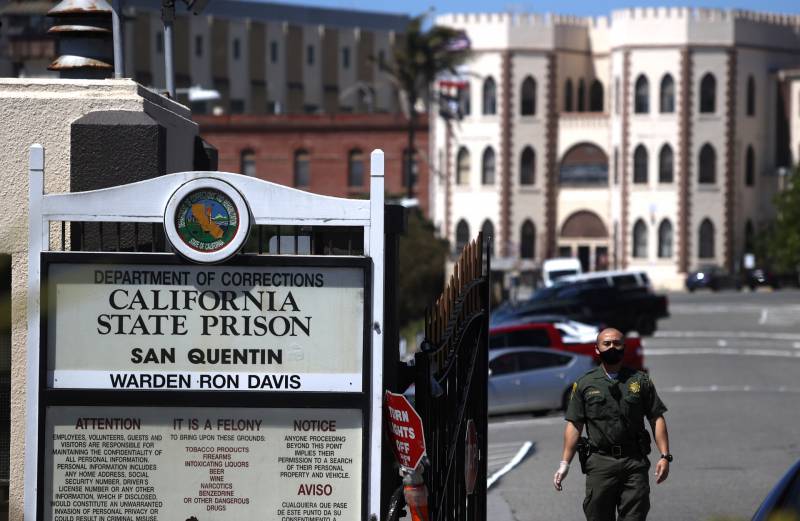Since the start of the pandemic, 245 incarcerated people and 49 corrections staff have died statewide.
Corrections officials said they “continue to enforce a mask mandate for all staff, and require unvaccinated workers to wear N95 masks and submit to twice-weekly testing — twice the frequency required” by the California Department of Public Health.
They also said in a statement they are “diligently resolving discrepancies in the staff COVID-19 vaccination and testing data” but can’t yet provide updated statistics.
A related review by corrections officials of staff at two prisons that house the sickest people reduced the percentage of those initially listed as not complying with health rules from more than 10% to just 2% at the California Medical Facility in Vacaville and from more than 8% to about 5% at the California Health Care Facility in Stockton.
Meanwhile, vaccinations are lagging among contractors at those prisons, the attorneys of people incarcerated say, despite a separate requirement that all employees there be inoculated. Again there are few consequences, according to court documents, because contractors “cannot be disciplined for failing to comply.”
Contractors are not state employees, but “are supposed to comply and they should not be working in the institution if they are not vaccinated,” Paul Mello, an attorney for the corrections department, said in response at a recent court hearing.
Contractors including medical providers make up about a quarter of employees at the Vacaville prison, but only 37% are vaccinated as required.
They make up nearly 1 in 5 employees at the prison in Stockton, with 61% vaccinated. That compares to about 80% of permanent employees vaccinated at the two prisons.
State Public Health Officer Dr. Tomás Aragón last week expanded on the vaccination order for all paid and unpaid individuals who are regularly assigned to provide health care to incarcerated people or work in prison medical settings or in local jails.
They were supposed to be vaccinated by mid-October, and his order now requires them to get booster shots by Feb. 1.
Citing the new omicron variant that he said may be two to four times as infectious as the delta variant, Aragón warned that “even a moderate surge in cases and hospitalizations could materially impact California’s health care delivery system within certain regions of the state.”
The federal court-appointed receiver who controls medical care in California prisons said officials are working to get boosters in all eligible incarcerated people by year’s end. Of about 70,000 eligible people, nearly three-quarters had received one by mid-December.

